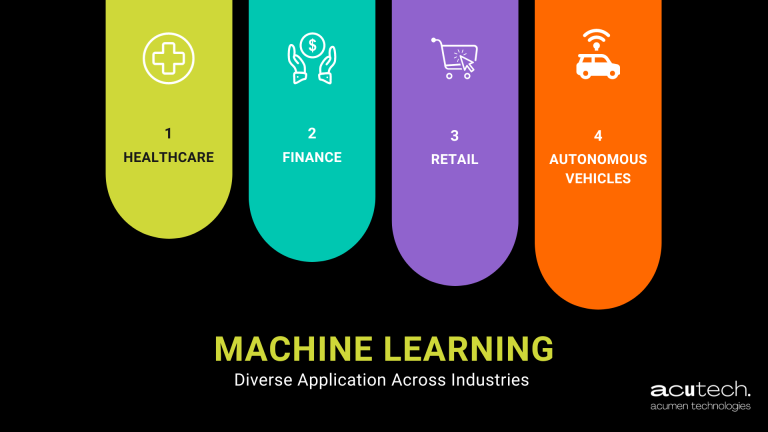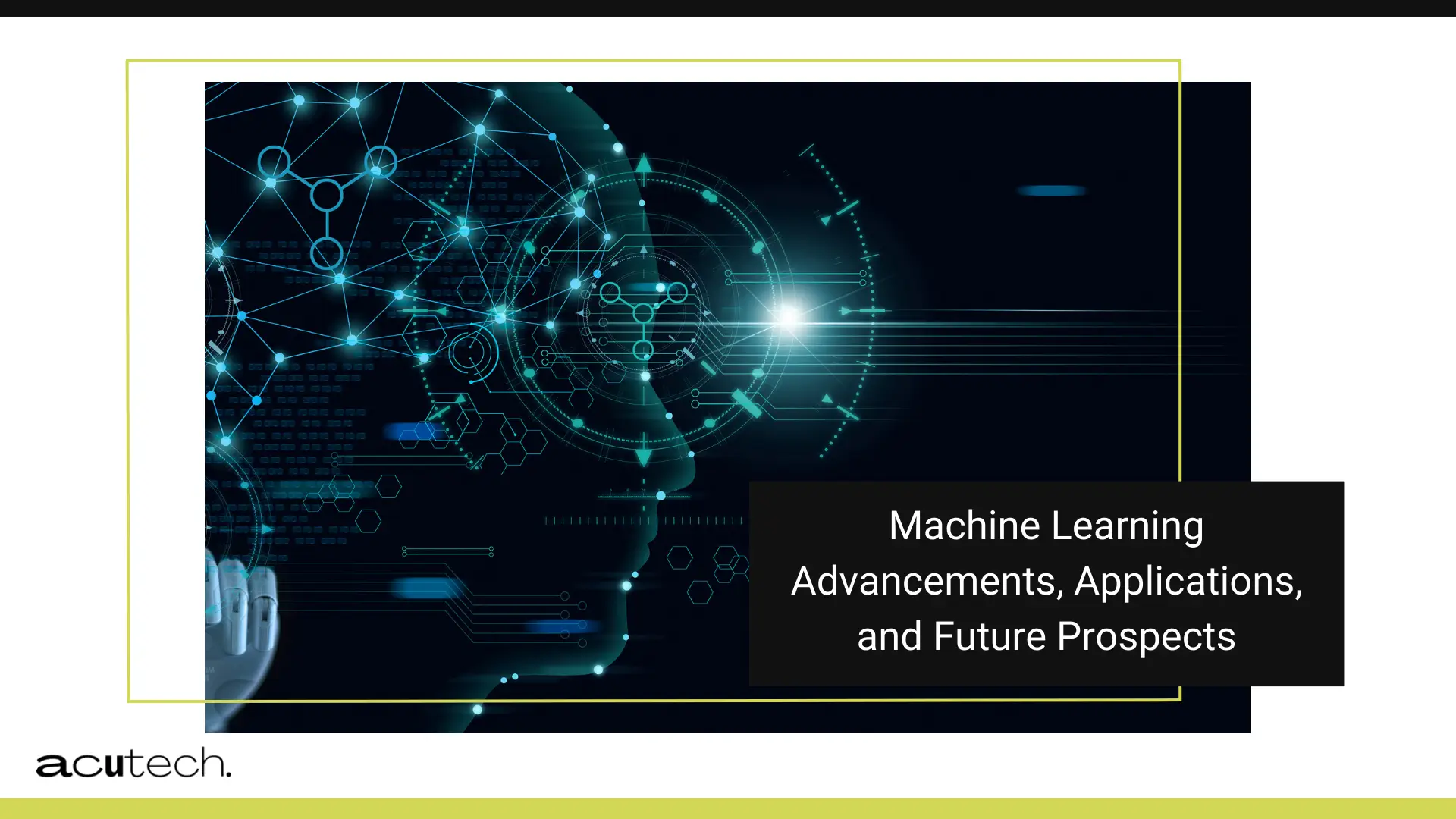Few fields have captured as much attention and investment as Machine Learning (ML) and its subset, Artificial Intelligence (AI) in recent years.
We’ve also closely monitored the rapid advancements in ML, keenly aware of their transformative impact across sectors like healthcare, finance, and retail.
In the sections below, we’ll delve deep into these advancements, uncovering the rich tapestry of ML applications and peering into its promising future.
The Evolution of Machine Learning: A Brief Overview
Machine Learning, a critical component of AI, harnesses complex algorithms and statistical models to empower computers with the ability to perform tasks autonomously, based on learned patterns and inferences rather than explicit instructions.
This journey of ML, originating with the development of the perceptron in the 1950s, has been marked by significant milestones, including the evolution of deep learning networks and a dramatic surge in big data processing and computational capabilities. These developments have not only revolutionized the approach to AI in finance and retail but also paved the way for groundbreaking innovations in autonomous vehicle technology and healthcare solutions.
Cutting-Edge Advancements in Machine Learning
Recent years in the realm of ML have been marked by phenomenal advancements that are reshaping numerous industries. One of the most significant developments has been the rise of deep learning networks. These networks, inspired by the human brain’s structure and function, consist of multiple layers of interconnected nodes or ‘neurons’. Each layer performs distinct transformations of the input data, allowing the network to learn from complex and abstract patterns. This ability has enabled deep learning to excel in tasks such as image and speech recognition, natural language processing, and even in creating art and music.
Another groundbreaking advancement in ML is the emergence of reinforcement learning (RL). RL distinguishes itself by focusing on how software agents should act in an environment to maximize some notion of cumulative reward. This learning process is similar to teaching a child through rewards and punishments, where the algorithm learns the best actions to take in a given situation through trial and error. This approach has been pivotal in areas such as game playing, autonomous driving, and in optimization problems in logistics and supply chain management.
Furthermore, the integration of AI with cloud computing and the Internet of Things (IoT) has opened new avenues for ML. This combination allows for real-time data processing and enhanced connectivity, facilitating smarter, more efficient, and predictive systems.
Diverse Applications Across Industries
The applications of ML are diverse and transformative across various sectors:
- Healthcare: ML algorithms are revolutionizing diagnostics and patient care. For instance, algorithms can analyze medical images with greater accuracy than human radiologists, aiding early disease detection.
- Finance: In finance, ML is employed for algorithmic trading, fraud detection, and risk management. ML algorithms can analyze market trends and execute trades at a speed and precision unattainable by humans.
- Retail: The retail industry leverages ML for personalized shopping experiences. By analyzing customer data, algorithms can suggest products, predict purchasing behavior, and optimize inventory management.
- Autonomous Vehicles: Self-driving cars are perhaps one of the most exciting applications of ML. Through a combination of ML and computer vision, these vehicles can interpret and navigate their surroundings.

Ethical Implications and Challenges
The strides made in ML, while impressive, present a myriad of ethical challenges that need urgent addressing. One of the primary concerns is data privacy. As ML algorithms require vast amounts of data, there is a risk of sensitive information being misused or exposed. Ensuring the privacy and security of this data is paramount to maintain trust and comply with regulations like GDPR.
Algorithmic bias is another significant issue, where ML systems may inadvertently perpetuate and amplify societal biases. These biases can creep in through the data used to train the algorithms or the design of the algorithms themselves. Mitigating this bias is crucial for fair and equitable outcomes, especially in critical areas like criminal justice, hiring, and lending.
Moreover, the rapid adoption of ML raises concerns about job displacement. As automation becomes more prevalent, there is a risk of significant disruption in the job market. Preparing the workforce for this transition, through re-skilling and up-skilling, and developing policies to support those impacted, is vital for a smooth integration of these technologies into society.
Lastly, the potential for misuse of ML in creating deepfakes, surveillance, and autonomous weapons poses significant ethical and security risks. Developing robust guidelines and regulations to govern the use of ML in sensitive applications is essential to prevent its exploitation.
Future Prospects: The Road Ahead
Looking ahead, the future of ML appears both promising and challenging. One of the key areas of focus will be on developing explainable AI, where ML models provide transparent explanations for their decisions, enhancing trust and reliability.
Another frontier is the integration of ML with quantum computing. This combination could exponentially increase processing power, opening new possibilities for complex problem-solving.
The concept of generalized AI, where machines exhibit human-like intelligence, remains a long-term goal. Achieving this would require breakthroughs in understanding human cognition and significant advancements in ML algorithms.
Conclusion
Machine Learning stands at the forefront of technological innovation, with its advancements rapidly reshaping industries and everyday life. As we embrace these changes, it is crucial to navigate the ethical landscape and anticipate future developments carefully.
At Acumen Technologies, we remain committed to exploring the depths of ML, harnessing its power to drive innovation, and addressing the challenges it presents. Whether you are looking to integrate ML into your business or seeking to understand its implications better, we are here to guide you through this ever-evolving landscape.
Ready to explore the possibilities of Machine Learning for your business? Contact Acumen Technologies today to unlock the potential of this transformative technology.


